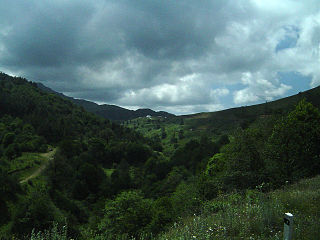 W
WBattle of Ab Darrah Pass was the battle that took place in 1511 in the place called Ab Darrah between Uzbeks and Babur of Timurids. The battle ended with the decisive Timurid victory which enabled Babur to regain Transoxiana and briefly reunite the whole of the ancestral part of the Timurid Empire.
 W
WIn the early 16th century, Sultan Mahmud Khan, the Chagatai Khan of Western Moghulistan, and Sultan Ahmad Alaq Khan, the Chagatai Khan of Eastern Moghulistan, decided to counter the growing power of the Uzbeks under Muhammad Shaybani. Sultan Ahmed Tambol had rebelled against his Timurid master Babur and declared his independence. But when Babur tried to reconquer his territory with the help of his uncles, Ahmed Tambol sought the assistance of the Uzbeks. The two Moghul brothers united their forces and launched a campaign against Tambol, but Muhammad Shaybani surprised the Khans and proved victorious in battle of Akhsi and took them both prisoner.
 W
WWhile Abul-Qasim Babur Mirza was away from Herat crushing the revolt of Amir Hendugha in Asterabad, Ala al-Dawla Mirza, his older brother, managed to escape from prison in Herat and went straight to his youngest brother Sultan Muhammad Mirza's province of Fars seeking his protection. Sultan Muhammad Mirza and Ala al-Dawla Mirza then marched with a large army and invaded Khurasan in 1449. This was the same time as the revolt of Abdal-Latif Mirza in Balkh against his father Ulugh Beg at Samarkand. While the father and son were busy facing off at the Amu Darya in the north, the Baysonqor brothers were about to engage in battle in Khurasan. Abul-Qasim Babur Mirza marched to face his brothers in battle and the two armies met at Farhadgerd. Sultan Muhammad Mirza and Ala al-Dawla Mirza defeated Abul-Qasim Babur Mirza who fled to the castle of Omad. Sultan Muhammad Mirza entered Herat and freed Ibrahim Mirza son of Ala al-Dawla Mirza. Abdal-Latif Mirza, who before the battle had sent an envoy to Abul-Qasim Babur Mirza professing peace during his revolt against his father Ulugh Beg, now congratulated Sultan Muhammad Mirza in taking Herat. But Sultan Muhammad Mirza was saddened by Ulugh Beg's defeat at Dimishq and his murder en route to Makkah by his son; however, he decided not to pursue a war in Transoxiana and instead wanted to concentrate on his holdings in Iraq-i-Ajam, Fars and now Khurasan as well.
 W
WThe Battle of Nakhchivan was fought between Kara Koyunlu under their Bey, Qara Yusuf and the Timurid Empire under the leadership of Timur's grandson Abu Bakr bin Miran Shah, for control of Azerbaijan on October 14, 1406. Qara Yusuf decisively defeated the Timurids in this battle and took over Tabriz, the capital of Azerbaijan.
 W
WThe Battle of Qarabagh was fought on February 4, 1469, between Aq Qoyunlu under Uzun Hasan, and the Timurids of Samarkand under Abu Sa'id Mirza, resulting in the latter's defeat, imprisonment and execution. After the battle, the Timurids forever lost any hopes of gaining Iraq or Iran back into their kingdom.
 W
WAfter the Uzbeks were driven out of Samarkand in early 1501 CE, they regrouped in Bukhara. Muhammad Shaybani began to prepare for another attempt to take Samarkand in April - May 1501 CE. Babur, the Timurid leader, decided to meet this threat before it arrived at the city. The two armies met at Sar-e-Pul, where a decisive battle was fought which decided the fate of the Timurids and of the region, resulting in gradual conquest of Transoxiana, Khwarezm and Khorasan by the Uzbeks.
 W
WBattle of Sarakhs took place in March 1459, at a location between Merv and Sarakhs.
 W
WThe Siege of Tbilisi was the successful siege of the city of Tbilisi, capital of the Kingdom of Georgia, by the Turco-Mongol conqueror Tamerlane, which ended on 22 November 1386. The official history of his reign, Zafarnama, represents this campaign in Georgia as a jihad.
 W
WThe Battle of the Chirciq River was fought between Sultan Mahmud Khan of Moghulistan and Sultan Ahmed Mirza, the Timurid ruler of Samarkand & Bukhara in 1488 CE over the city of Tashkent. The Moghuls decisively defeated the Timurids as a result of the defection of 3,000 Uzbeks under the command of Muhammad Shaybani Khan.